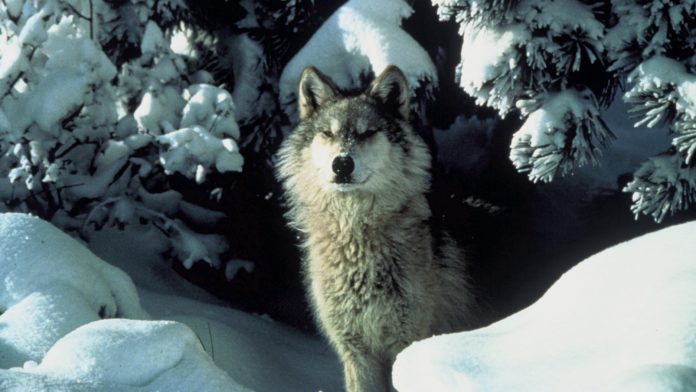University of Alberta researchers have found that snowfall causes wolves to keep their movement to a minimum, although the exact reasons why remain unclear.
Telemetry data on 17 grey wolves were recorded over the course of two winters near Fort McMurray and compared with local snowfall data. Researchers used remote cameras and tracked collars to monitor the pack.
This study of large carnivores’ movements in relation to snowfall is thought to be the first of its kind.
The effect of snowfall may mean a skipped meal
Interestingly, limitations on movement were most pronounced at nighttime, even though this is prime hunting time. Rest was more common than travel, and the wolves’ gait was also noticeably altered during such periods.
Within 24 hours after snowfall, the wolves resumed normal patterns of movement. The team noted several possible explanations in the paper for this behaviour.
“Our findings suggest that there is something about actively falling snow that causes wolves to slow down,” says lead author Amanda Droghini.
“We don’t know the exact mechanism behind that. It’s unlikely that they were staying still because they were feasting on a recent kill. Instead, active precipitation might affect wolves’ hunting abilities.”
According to the authors, snow and rain clear scent molecules from the air and may disturb the leads that predators rely on to track prey. Naturally, smell is even more important for wolves when hunting at nighttime, so this could explain their idle behaviour.
Another strong possibility is that the energetic cost of pursuing prey in harsh conditions may be too much.
General winter conditions already make it difficult for creatures to find the resources they need to persevere. Additional pressures may lead to nutritional deficits or even starvation if the animal is unable to keep up with the heavy energy demands.
“[Starvation] is one of the worst-case scenarios but, in truth, we know very little about potential changes to precipitation patterns and how wildlife will respond to those changes,” says Droghini.
Too slippy to catch or were prey simply a ‘no-show’?
Rain-on-snow events create an icy layer over packed snow, making the territory challenging to manoeuvre through, let alone hunt.
These issues could also be affecting prey as well, who may be resting in a secure spot till the weather improves. Unfortunately, the team had no data to verify this idea, leaving it a question for future research.
An important takeaway from the paper relates to climate change and its effect on local weather patterns.
If the energy theory is correct, an increase in rain-on-snow events could have a serious impact on wolves’ ability to cope. Even if the winter is survived, large stores of energy need to be gathered for the coming reproductive season.
Droghini says that it remains speculative what effect climate change will have on the wolves due to the limitations of their data and the lack of snowfall info in isolated northern regions.
Nonetheless, this paper is a step forward in our understanding of the effect that short-term weather events have on large carnivores.





































